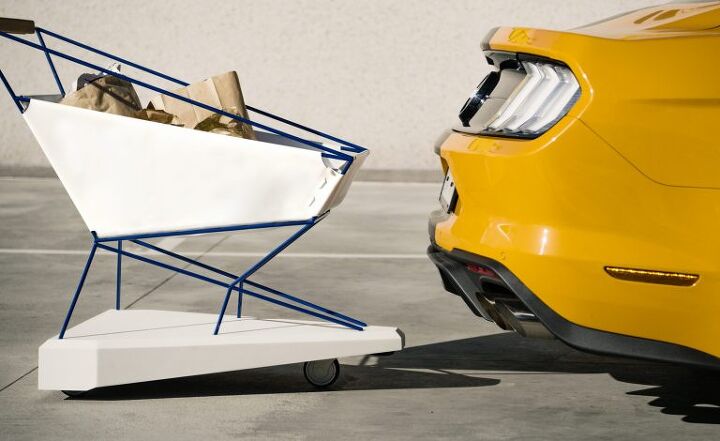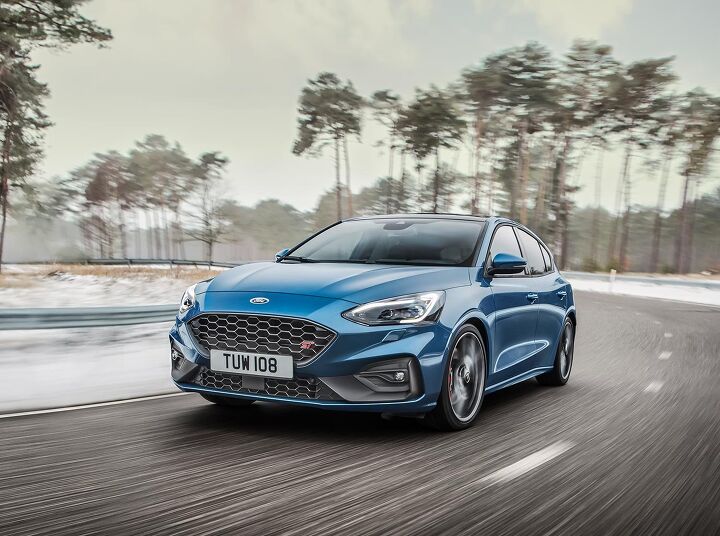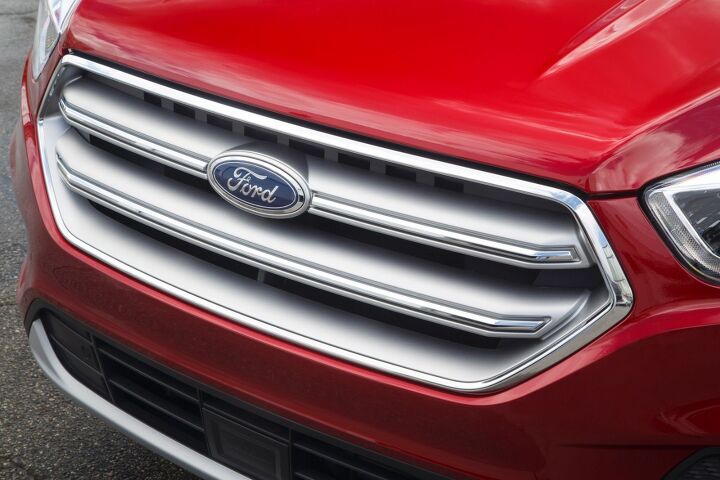#FordEurope
Ford Plans to Cut More UK Jobs in European Restructuring
Having already announced plans to cut thousands of jobs in Europe in an effort to stem the region’s ongoing cash hemorrhage, Ford has reportedly begun re-examining the United Kingdom. Initially, the automaker’s restructuring plan involved ending production at a transmission plant in France, killing the C-Max in Germany, and dissolving its Ford-Sollers joint venture in Russia.
While Ford hoped to shed as many employees as possible through voluntary retirement, it acknowledged it would have to fire at least 5,000 people in Germany and an unspecified number of U.K. citizens in March. The company hasn’t settled on a figure, though inside sources claim it should be no more than 550 jobs — all of which should be of the non-manufacturing variety.
Behold Ford's Futuristic Shopping Cart
This author absolutely loves Ford Europe’s extracurricular mobility projects, in the same way someone might enjoy Tommy Wiseau’s The Room or watching Orson Welles’ drunken wine advertisements for Paul Masson.
While certainly not as good as the automaker’s noise-canceling doghouse, lane-keeping bed or slow-moving Carr-E puck (my all-time favorite “mobility innovation”), Ford’s new shopping cart isn’t far behind in terms of accidental amusement. It just happens to have enough practical applications to avoid being hysterical.
Ford's Axe Falls in Germany
After a fiscally damaging year that Ford CEO Jim Hackett implored employees to forget, cuts are coming to the automaker’s workforce, and America won’t be spared. But America can wait, as that region remains a major profit generator. Other regions aren’t, and the automaker’s axe has already fallen in South America.
Now it’s Germany’s turn, with Ford announcing the loss of “more than 5,000” workers in that country.
Ford Launches Phase One of Its Restructuring Plan; Changes Target Money-losing European Arm
Ford Europe announced it had shuffled its leadership on Friday as part of a larger restructuring plan, appointing executives in Germany and the United Kingdom to oversee “ Sprint to 6 Reset and Redesign.” The strategy seeks to achieve a 6 percent EBIT (earnings before interest and taxes) margin, investing only in products and services that it believes best support long-term, sustainably and profitable business.
“Ford is implementing key leadership and organizational changes to improve the fitness and agility of its European operations as it undergoes a fundamental reset and redesign of its business,” the company said in an announcement that emphasized creating operational agility.
While the full scope of the plan has yet to be announced, layoffs and factory closings seem highly probable. Ford said announcements concerning the details of the restructuring are expected between now and the beginning of 2020. Europe is expected to be the primary focus during the initial months, however. Ford Europe lost nearly $250 million in the third quarter of 2018, significantly worse than it managed in 2017. The company now expects to see a net loss for the region this year.
It's Happening Again: Ford Europe Wants to Shift Attention/Money Away From Cars
In an earlier analysis of Ford’s lackluster share price, we noted that Europe and China posed a significant problem for the automaker’s bottom line. Europe, which was previously pretty good to the brand, has gradually lost its share of the market since 1994. While Ford still moves a lot of metal in the region, something’s definitely wrong.
On Wednesday, Ford announced that its European operations had endured a $73 million second-quarter loss. It’s anticipating a full-year loss in the region after earning $234 million last year. “We’re extremely dissatisfied with our performance in Europe,” said CEO Jim Hackett.
Something has to be done to avoid further setbacks. According to Jim Farley, Ford’s head of global markets, the clear remedy is concentrating on vans and crossovers because that’s where the money is. It’s a similar strategy to what’s being done in the United States, where Ford eventually aims to cull the lineup to a point where the Mustang is the only vehicle that qualifies as a traditional car. But is it the correct one, considering how we’ve arrived at this point?




















Recent Comments